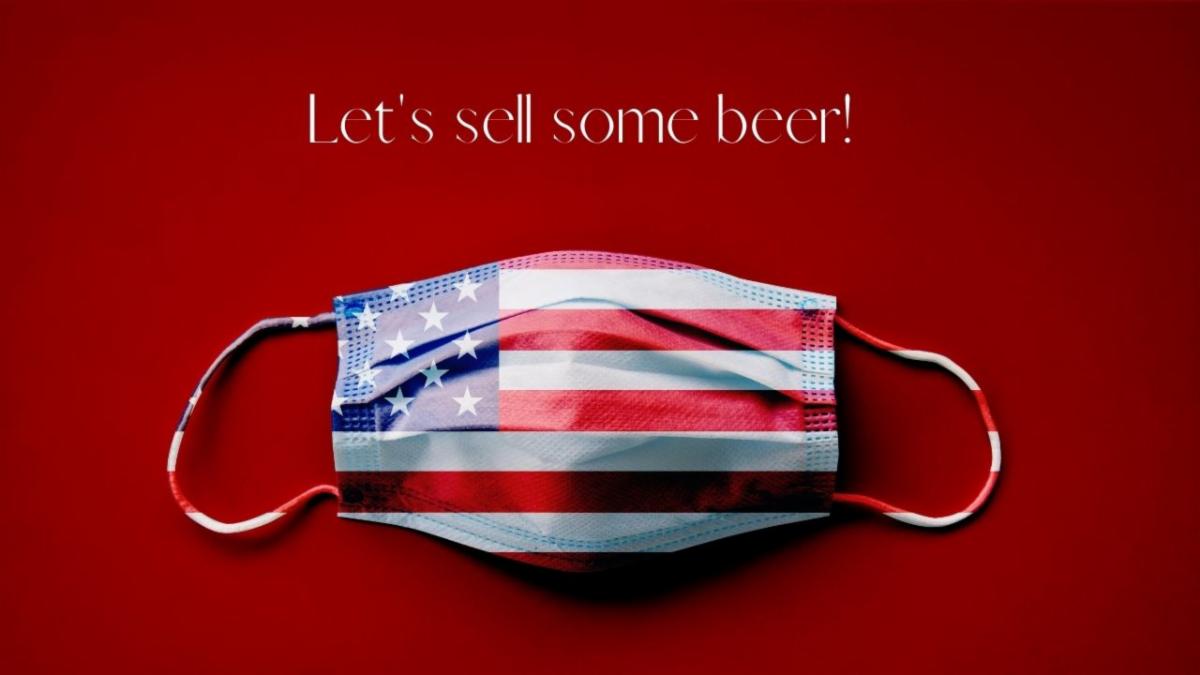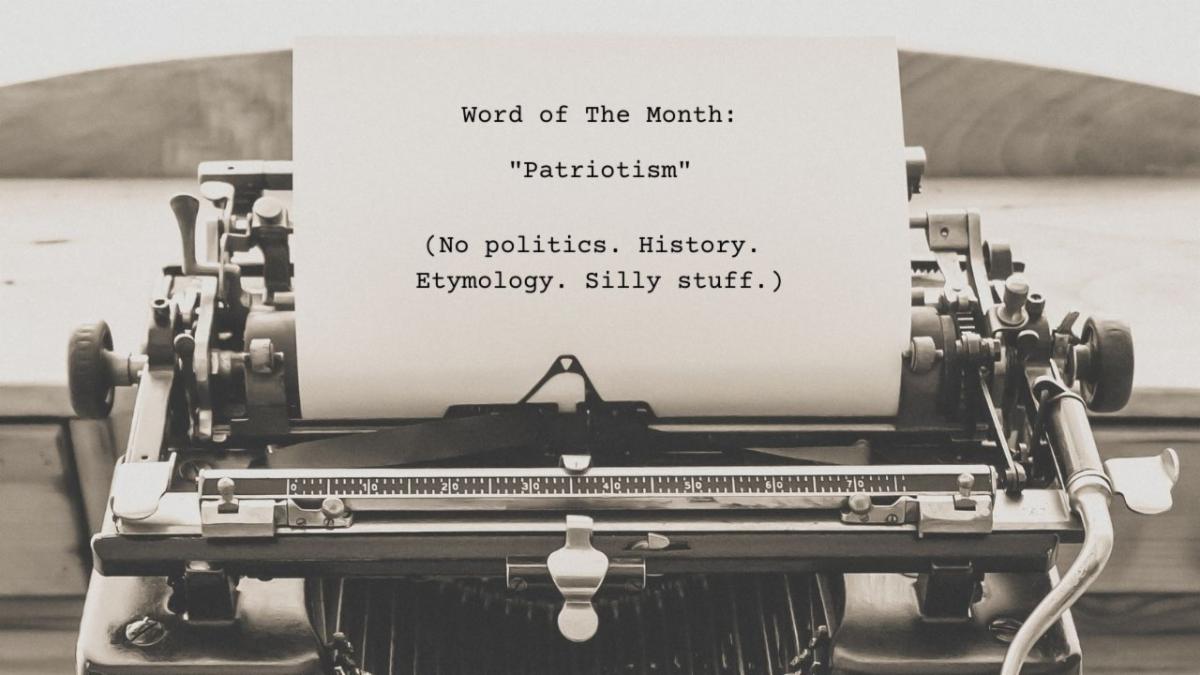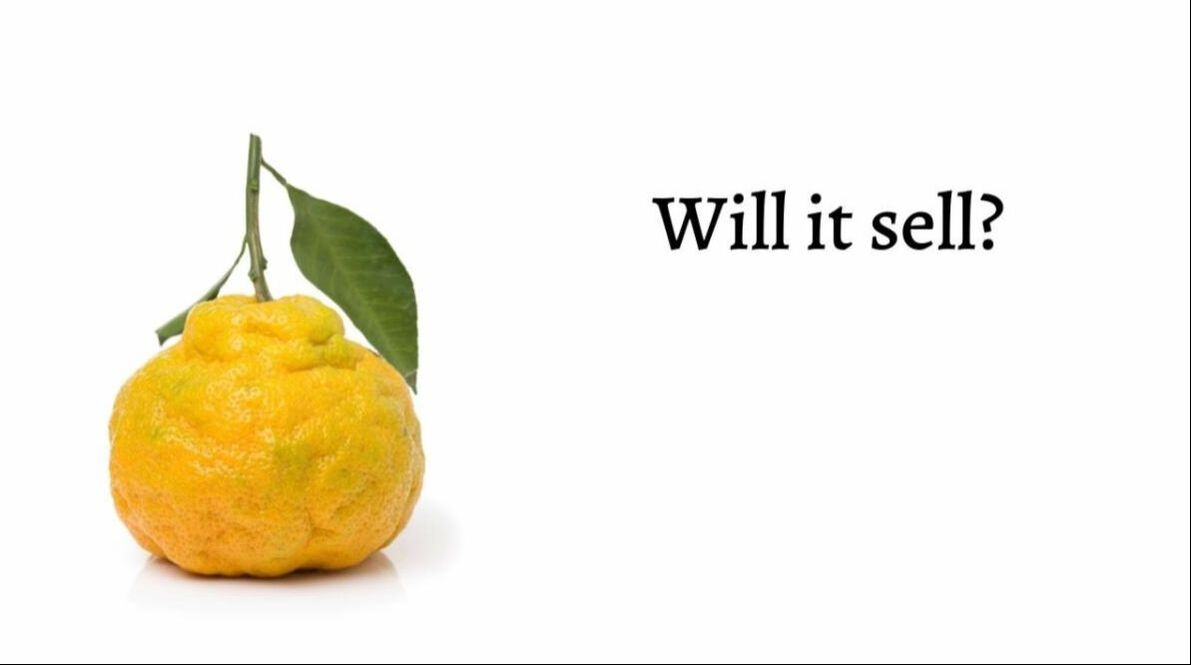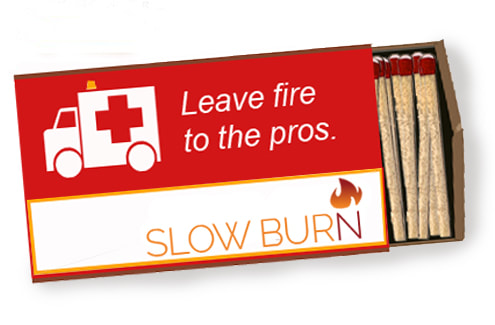|
The Anti-Masker Appeal For Fun & Profit!
Like me, you might be a big, hairy, anti-masking man. I’ve been thinking things through. And I want to talk to you about a power we may be missing out on. This power can change lives, make former enemies love us, and give us the ultimate power of persuasion in getting our fellow Americans to believe we’re helping to change the world, even if we’re not. We’re talking about appealing to the Placebo Effect. You and I know the pro-maskers are falling victim to nefarious forces determined to control our brains and democracy for the sinister creep of global socialism and crappy health care. If you’ve ever read about Mary Mallon, she believed something equally nefarious was at work when she was told that she had highly contagious typhoid, and she should take herself out of circulation as a cook inside people’s homes. Typhoid Mary knew better, of course. She was no fool. She infected only 53 people, and only three of those people died. Everyone else enjoyed her mad skills at corned beef and cabbage casserole. She’s so famous as a denier, she's even got her own Wikipedia page. But let’s forget about Mary for the moment. Instead, let’s look at the power of the brain to make people feel better. The Placebo Effect is all the rage right now. You’ve certainly heard about the legendary sugar pill used in Big Pharma medical studies. (Just by the way, Big Pharma does not rule the world, despite what highly reliable sources are telling you on highly reliable social media channels in between adorable videos of kittens with sidearms and photos of Bernie wearing mittens made of recycled plastic bottles.) It turns out that merely participating in a pharmaceutical study, being told what the study drug should do, then being given a sugar pill is potent. It can fool your brain into creating the intended effect of the actual drug. This is placebo in action. Placebo Effect switches on the brain’s neurotransmitters, bringing good feelings about the sugar pill, and lulls the subject into the poetic complacency of actual wellness. This sugar pill makes your migraine melt away! Seriously. This is actual, medical science stuff. People are stupid enough to be fooled into believing a sugar pill is effective medicine and they feel better. That’s the classic situation. There’s a new and exciting placebo for big, hairy fat people like me. You’re not going to believe this one. Ready? Think yourself thin! A new study shows that people who merely imagine themselves exercising are actually in better shape than people who don’t. Have you wanted a Peleton, but the bike is on backorder or otherwise too close to the cost of three mortgage payments for you to feel good about buying it instead of just going running and doing pushups or riding that actual bike that’s already in the garage? Forget about it! Now, I can just think about my husband giving me a Peleton, and I, too, can become an object of interwebs scorn and derision for welcoming inferred fat shaming from my spouse AND be better toned in the process! Placebo ho! Actual exercise be gone! Anyway, despite centuries worth of supposed evidence both clinical and anecdotal, going as far back as the rollicking good times of The Black Plague, we all know the mask is a pointless exercise in preventing the transmission of a potentially deadly disease. The surgeon who cuts us open is wearing that surgical mask only as malpractice suit prevention because in court you can’t say with 100% assuredness the guy on the stand is the same guy who had the scalpel. Kill all the lawyers! But I digress. Let’s forget that. Let’s go placebo! Think of the potent national thought storm that would erupt from sea to shining sea if everyone came together and became unified under the same N95 mask. People’s neurotransmitters would start going crazy! Everyone’s brains would light up and say, “Hell, yeah! We can kick this COVID crap to the curb!” All those at-risk people who are afraid to leave the house would suddenly feel less at-risk--as if maybe there’s some actual hope. Imagine the domino effect! The entire nation could fool itself into eliminating a disease. All those feel-good endorphins and all that dopamine would get busy inside everyone’s system and make stuff happen. And then, the United States would be like weeny little New Zealand, where months ago, millions of people fooled themselves into believing this nonsense and are now running around in shopping malls and hanging out in bars and breathing in each other’s faces like there’s no tomorrow. All that dopamine and all those endorphins go rushing around in our heads and create better moods and more positive emotional reactions and (ready for this?) enhanced self-awareness. Think how thoughtful you might become! Like me, you could win friends and influence people and might even have career potential for the highly profitable diplomatic corps. Because when we start thinking tactically, like “Oh, maybe maskless me has been scaring that old fat man with diabetes and that mother who just went through chemo. I don’t want them thinking I’m Typhoid Mary, even though Mary never wore a headdress like this one made of racoon pelts and buffalo horns,” everyone feels better about things. (I’m now hanging my headdress over the fireplace.) Think about how this impacts the Super Bowl. If everyone gets on the Placebo Effect bandwagon by wearing a mask, Budweiser could turn around and take that five and a half million bucks they’re channeling into COVID-awareness advertising and put it back into a Super Bowl commercial where it belongs. Then, big, hairy anti-masking men like me can get all blubbery over a 30-second story about Clydesdale horses once again making the world safe for puppies and democracy. Placebos. Emotions. Brain chemicals. Moods. Cooperation. Happiness. Happy cooperation has happened before. Americans used cooperation to make this nation great enough to get through World War II. It can work again on this new war. Or I’m not an American. Cheers, Blaine Parker Your Lean, Mean Creative Director in Park City LIGHTNING BRANDING ON AMAZON The Kindle edition of our new book is now available at Amazon for the bargain price of $19.95. For details about our new Lightning Branding courses, both do-it-yourself and we-do-it-with-you editions, click here. (There's even a video of us!)
0 Comments
How To Hate Bird Seed For Fun And Profit
The birds keep thrashing through it and throwing it away. The bigger birds especially. Like the giant jays. They fly up, jump on the little feeding tray, and start flinging great masses of seed everywhere with a maniacal abandon, interrupting their frenzy only when they peck at a morsel that seems to meet their discriminating pallet. The smaller birds are more covert about it. The finches don’t fling as freely. You can see that they’re doing it. But they do it with this delicate, “Who, me?”, behind-the-napkin demeanor that seems so of another time, when we didn’t require Miss Manners to be endlessly pointing out our flaws of social ettiquette. Anyway, all this bustle of activity and flinging at the feeder. What are these birds doing? Is this the avian equivalent of opening the Whitman’s Sampler and flipping over each chocolate, poking a hole in the bottom of each until you find the one that meets your fancy? In a word: Yes. As Mr. Canary could tell me, I’ve bought cheap seed and it contains filler. While I’ve not done a laboratory test to determine the nature of said filler, I have it on good authority (some interwebs expert known to me for a minute or so) that we’re talking about things like cracked corn. Give my birds cracked corn and they don’t care, the crap they fling away! But, watching the birds at work is fun. Never before has this feeder seen so much activity. Ya know what else is fun? That huge pile of seed that collects beneath the bird feeder. That’s because it attracts the ducks from the pond across the way. All those mallards waddle over and pick up that mountain of cracked corn and other detritus. Even more fun is when the neighbor decides to walk his dog. He comes around the corner by the feeder, and the mallards go into a panic, flying off in a frenzy of flapping wings that sound like furious applause from a crazed audience all wearing down mittens. Now that I know why the birds are flinging their feed with abandon, will I replace it with something better? I could. But the better seed costs twice as much. And it’s guaranteed to not generate as much crazed activity. Spending more will diminish the entertainment value. And herein lies a potential sales message using a little known tactic called “exploitable weakness.” We’re not talking computer terminology, where a bad actor finds a flaw in a software system and uses that vulnerability to commence an attack. (I’m not clear on how they attack. Maybe the peck around, flinging zeroes and ones into piles until they find the digits they desire.) In sales, sometimes you’re tasked with selling a product that might seem flawed. But that apparent flaw might have a benefit that can make the item desirable. It just requires a sales perspective that spotlights the benefit in the flaw. Ready? “Hours of entertainment from the cheapest, biggest bag of birdseed! Crazy big activity from all kinds of birds! Finches, jays, mallards and more! Why spend double the price when you can have all kinds of fun for pennies on the dollar!” I wrote that line while standing in front of the birdseed selection at Home Depot. And I sold myself on staying with the cheapest seed. Birds know what they want. And so do I. What’s your favorite exploitable weakness? Cheers, Blaine Parker Your Lean, Mean Creative Director in Park City LIGHTNING BRANDING ON AMAZON The Kindle edition of our new book is now available at Amazon for the bargain price of $19.95. For details about our new Lightning Branding courses, both do-it-yourself and we-do-it-with-you editions, click here. (There's even a video of us!) Word Of The Month: Patriotism
Welcome to the first installment of Words Good, a marginally enlightened effort at illuminating the use of words that penetrate the zeitgeist like a stake through the heart but without as much of a mess to clean up. This month’s word, “Patriotism,” is being tossed around a lot lately. Interestingly, it’s unclear whether everyone is in concurrence on its meaning. So, what does “Patriotism” mean? We can start with a basic definition stolen straight from the oracle of all that is true because of the zeroes and ones involved: Wikipedia. “Patriotism” is a feeling of love, devotion and sense of attachment to a homeland, and an alliance with people who share the same sentiment. (No, I’ve used not quotation marks on that definition, but again, to be clear: stolen directly from Wikipedia.) I once had the rare fortune to live in the wilds of Los Angeles among the fearsome Hollywood Liberal Elite. These are people who, ironically, consider themselves patriotic but would never call themselves “patriots” because they feel it smacks of jingoism. So now, one must ask: What is "jingoism," anyway? It sounds dirty. Well, it kind of is “dirty.” But not in the sense of getting sent to the principal’s office, or writing lines that say “I will not say ‘jingo’ in class,” or having your mouth washed out with soap kind of dirty. It's more like empirically dirty. To again steal unabashedly from Wikipedia (and know that I do make my annual meager donation to the non-profit Wikimedia Foundation, so I hope to receive some special dispensation for that beyond the tax deduction), “jingoism” is a kind of nationalism in the form of aggressive and proactive foreign policy, such as when a nation uses threats or force to protect its national interests. That sounds like something I saw in The Sopranos before James Ganfolfini’s heart exploded on a bathroom floor in Rome. Did he (or Tony Soprano) have a proactive foreign policy? Hard to know. We can’t ask him. Anyway, we never seem to hear patriots talk about jingoism. That might be because, like me, they might fear it sounds dirty, or else they just don’t know what it means. Or both. But back to Word Of The Month: “Patriotism.” Guess what? Americans define patriotism differently than other places. Who saw that coming and waving a flag ahead of it? American patriotism diverges from the European definition of patriotism. And since the US has traditionally diverged from European countries on many things, that’s unsurprising. See also: gasoline prices, the cost of medical care, and cisgender leg hair. The English word “patriot” derives from the Middle French word “Patriote,” which in turn comes from the Late Latin, “Patriota,” or “fellow countryman.” Want more coffee yet? I do. I want French-style coffee. The French make coffee strong enough to make your head fly off. And just by the way, France and America have historically been great allies despite the fact that us Yanquis put ketchup on our fries instead of mayonnaise or Dijon mustard. The French also have something called sauces pommes frites, which is "vaguely béarnaise-like" (thank you again, Wikpedia), and despite translating to "fried potato sauce," it bears no resemblance to the Utah phenomenon known as "fry sauce" which is in no way "bérnaise-like" and more Russian-dressing like, which means like ketchup and mustard whirled together in a bowl, and which could also be the beginning of an international incident. And speaking of international incidents, the French seem to hate the English language and don’t like to speak it because centuries ago, the then conquering English forced them to speak English instead of French. Did the French also have to start calling pommes frites by the word "chips"? Historical records are unclear. Conversely, the English and Americans are great allies because a couple of centuries ago, America sort of kicked the crap out of them. I once witnessed July 4th in the UK. It was very celebratory of us as Americans. I don’t get it. But I digress. None of us (the English, French or Americans) are fellow countrymen, but are we all patriots? Ugh. That word again. Would it please get around to explaining itself? The classic European meaning of patriot is anyone who is a fellow countryman, regardless of socio-economic position. But at one point, the term was applied to Barbarians, who were considered "uncivilized or primitive." The only thing Barbarians had in common with their fellow countrymen was country, and wondering why the New England Patriots couldn’t keep legendary quarterback Tom Brady. Also, it’s ironic that, at one point in world history, it would not have been unusual to hear a castle sentry cry out, “The barbarians are at the gates claiming to be patriots!” But again, I digress. Differences aside, a commonality of patriotism in both America and Europe is a notion of “civic virtue.” For another purloined definition (don’t worry, we will examine “purloined” as next month’s word of the month), “civic virtue” refers to the habits important for the success of a community and the common welfare. Important to note that "civic virtue" is taught mainly in a republic. But in a monarchy, there is no civic virtue. It is preempted by the monarch’s virtue. So patriots are not Barbarians at the gate, but citizens who feel a love and devotion and sense of attachment to a civic virtue for the success of the community and the New England Patriots until Tom Brady starts playing for Tampa Bay. All this just in case you start wondering what the word “patriotism” means when that word starts being overused in various contexts that leave you scratching your head. Word of the day: “Patriotism.” It might also be your can of worms of the day, should you decide to open it. I’m sure it’s now mine. Cheers, Blaine Parker Your Lean, Mean Creative Director in Park City LIGHTNING BRANDING ON AMAZON The Kindle edition of our new book is now available at Amazon for the bargain price of $19.95. For details about our new Lightning Branding courses, both do-it-yourself and we-do-it-with-you editions, click here. (There's even a video of us!) Often, the things we sell are not sexy.
The words we use to sell them need not be sexy, either. But what those words do require is the ring of truth and trust. Nobody knew this better than a plumber’s kid from the South Bronx. He had a big problem. He had dealt with this problem most of his adult life. Many other people had, too. And when he came up with a solution, he sold it to a waiting nation with a message that rang with truth and trust. IMPORTANT NOTE: He never once used the words “truth” or “trust.” He used plain, simple English. But, not at first. His first effort flopped. His first effort at selling his not-sexy service was done with what many advertising professionals would approve as an aspirational lifestyle message. His first TV commercial featured a tall, handsome, athletic man. This man is shown jogging, playing tennis, riding a horse, and looking very much like nobody you’ve ever known. The athletic man’s hair, in every shot, seems to be blowing in the breeze and looking amazing. While the cameras and crew were shooting this TV commercial, something else happened. It was something inexcusable and frightening. This thing was done by the ad man in charge of the jogging, tennis-playing, horseback-riding message. The ad man came to speak with the plumber’s kid from the South Bronx. This ad man whom the plumber’s kid had entrusted with his message said something like this: “In case this ad doesn’t work, I’d like to shoot footage of you just talking about this.” No handsome man with great hair? Just the business owner? Just talking? So not sexy. Anyway, the message with the sexy, aspirational lifestyle message ran. Nobody called. It was a flop. So they ran the not-so-sexy backup commercial. That was the message with the plumber’s kid and his South Bronx accent talking about his business. That message did something different. It generated over 10,000 calls. This regular Joe looked right at the camera and said a line that became the much-loved punchline to so many jokes on late-night TV. “I’m not only the Hair Club president, but I’m also a client.” The nation lost many notable people in 2020. Sy Sperling’s death did not have the highest profile. But the man whose catch phrase is lodged into the gray matter of several generations serves as an enduring example of advertising at its unvarnished best. On so many levels, the Hair Club For Men advertising is considered bad. And no, it doesn’t rise to the level of art. But what it does do is rise to the level of effective craft. That’s the level where it conveys truth and instills trust. It resonates for a core customer who has a significant problem. It stands as a shining example of how a focused and effective marketing message brings truth and trust. The sexy, aspirational message failed. The plain-spoken, truthful message was explosive. That message helped Mr. Sperling build a business that began in a defunct beauty salon. Mr. Sperling eventually sold that business for $45 million. So the next time the ad isn't working and someone says it isn’t sexy enough... Or if someone says it needs to be funny... Or if someone says it needs to sound more like a commercial... Or if someone says anything that clanks instead of rings, that’s a good time to ask one question… Is it bringing the truth and trust? Cheers, Blaine Parker Your Lean, Mean Creative Director in Park City LIGHTNING BRANDING ON AMAZON The Kindle edition of our new book is now available at Amazon for the bargain price of $19.95. For details about our new Lightning Branding courses, both do-it-yourself and we-do-it-with-you editions, click here. (There's even a video of us!) |
AuthorBlaine Parker is prone to ranting about any and all things related to brand. In many ways, he is a professional curmudgeon. While there is no known vaccine for this, the condition is also not contagious. Unless you choose it to be so. Archives
February 2022
Categories
All
|
|
© Copyright 2020 Slow Burn Marketing LLC |





 RSS Feed
RSS Feed

